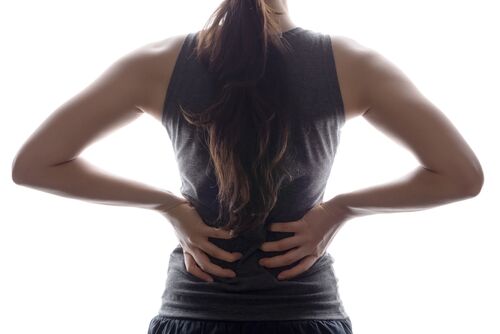Did You Know: Your Diet Could Be Contributing to Back Pain?

The link between back pain and diet is widely supported. This is because many of the common causes of back pain are directly related to your weight as well as maintaining proper nutrient levels to prevent injury. If you are looking for ways to reduce back pain through simple lifestyle changes, your diet is a great place to start.
Are You Drinking Enough Water?
Your body needs 8-10 servings of water per day to keep your muscles healthy. In fact, one of the many side effects of dehydration is muscle fatigue and cramping. If you regularly experience cramps in your lower back or shoulders, drinking more water might help. In addition, sugary drinks and sodas are known to have an inflammatory effect, which puts extra pressure on your spinal column.
Getting Your Micronutrients
If you’re looking to build a back pain diet, you really need to learn about your micronutrients. These include Calcium, Omega-3s, and more. Calcium is crucial to back health because it provides your spine with the necessary materials to keep your bones strong, preventing your spinal discs from breaking down prematurely. Eating more fish, whole grains, beans, and legumes can also help fill in any extra micronutrients that your body needs to help keep muscles strong and prevent inflammation. Try cutting out some of your red meat and adding more fresh veggies to keep the cartilage between your bones healthy as well.
Weight Loss and Your Back Pain Diet
Perhaps one of the most widely known causes of back pain is obesity. Carrying extra weight on your body often pulls your spine out of alignment, forces you to use a bad posture, and strains the muscles and bones of your spine. Losing any amount of weight can help relieve that strain, and allow your back to relax into a more natural position. If you feel that you weight may be contributing to your back pain, you can always consult with your back doctor as well as a dietician to create a weight loss plan that will serve to reduce back pain. In the mean time, your back doctor may also give you exercises that are appropriate to any physical limitations you may have. These exercises will contribute to weight loss while also focusing on restoring muscle strength and flexibility in the spine.
As you can see, there are many ways that your diet could be affecting your back health, leading directly to back pain. Creating a back pain diet that takes into account your body’s nutritional needs, as well as your weight loss goals, can go a long way toward eliminating back strain long term. Learning to stay hydrated and well-fed are part of a complete treatment plan with Royal Spine. Call us today to learn more and schedule a consultation with Dr. Abdulhamid.
About The Author
-

Dr. Abdulhamid is a highly skilled and experienced board-certified neurosurgeon with a passion for providing exceptional spine care. He specializes in minimally invasive spine surgery and has a reputation for achieving outstanding results for his patients. His commitment to excellence and patient-centered approach have earned him the trust and respect of his patients and colleagues alike.
RECENT POSTS
Three Reasons to Turn to Physical Therapy for Back Pain
Did You Know: Your Diet Could Be Contributing to Back Pain?
Exploring the Types of Back Surgery: A Comprehensive Guide
What to Expect During Spinal Decompression Therapy
Tips on How to Maintain Good Spinal Health
How You Can Protect Your Lumbar Vertebrae
Reasons to Discuss Your Back Pain With a Doctor
Understanding Dorsalgia: Causes, Symptoms & Treatment
How to Relieve Lower Back Pain at Home
What is Lumbago? Causes, Symptoms & Treatment
What To Do When You Experience Neck Pain
What Is Ultrasonic Spine Surgery?
How to Do Back Exercises for Back Pain
Ouch! Lower Back Spasms - Causes and Treatments
Why Have I Developed Back Pain After Surgery?
The Purpose of Spinal Decompression Surgery
Three Common Causes of Lower Back Pain
How to Prevent Back Pain at the Office
The Best Ways to Sleep With Back Pain
5 Daily Exercises for Better Spine Health
Is Your Mattress Causing Your Back Pain?
Supporting Back Health While Golfing